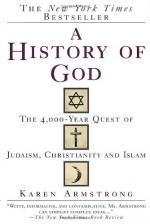
|
| Name: _________________________ | Period: ___________________ |
This test consists of 15 multiple choice questions and 5 short answer questions.
Multiple Choice Questions
1. The question that was resolved at a synod was called by the Emperor Constantine at __________.
(a) Nicaea.
(b) Istanbul.
(c) Nice.
(d) Constantinople.
2. Where did the newly founded religion of Christianity spread quickly?
(a) Places in the Eastern Mediterranean where the Jews of the diaspora had settled.
(b) In Spain.
(c) In Europe.
(d) In the middle east.
3. Whose preaching resulted in the belief that the newly emerging religion could and should be embraced by the Gentiles?
(a) St. Simon's.
(b) St. Thomas Aquinas's.
(c) St. Peter's.
(d) St. Paul's.
4. Muhammad instructed his followers to prostrate themselves in the direction of the Kabah in Mecca instead of at ____________.
(a) Galilea.
(b) Cairo.
(c) Baghdad.
(d) Jerusalem.
5. The development of conflicting philosophies of the nature and existence of God took place against the backdrop of ____________.
(a) The Second Crusade.
(b) The Fourth Crusade.
(c) The First Crusade.
(d) The Third Crusade.
6. Who is Bernard?
(a) The Pope of the Roman Catholic Church.
(b) A popular priest in Paris.
(c) The abbot of the Cistercian Abby of Clairvaux in Burgundy.
(d) An archbishop in the Roman Catholic Church.
7. What became clear to Muhammad regarding the majority of Jews in Medina?
(a) They were permanently hostile to him.
(b) They trusted him.
(c) They shared many of the same beliefs as him.
(d) They were also Muslims.
8. A counter movement came into being when the Shiis declared ____________.
(a) War on the Faylasufs.
(b) God's presence on earth was embodied in some mysterious way by their Imams.
(c) God did not exist.
(d) God's presence on earth was in the form of a man named Jesus.
9. Does the expression "Son of God" bear the same connotation in Hebrew as it does in Greek?
(a) Almost.
(b) Yes.
(c) Somewhat.
(d) No.
10. The application of their method to the Koran was also influenced by ____________ teachings.
(a) Persian, Buddhist, and Hindu.
(b) Jewish, Gnostic, and Hindu.
(c) Christian, Jewish, and Buddhist.
(d) Persian, Indian, and Gnostic.
11. What is the Kabah?
(a) A shrine in the center of Mecca.
(b) A religious book.
(c) A temple.
(d) A prayer.
12. After the synod, confusion still reigned in the Christian church with a competing philosophy developing at ________.
(a) Nice.
(b) Cappadocia.
(c) Constantinople.
(d) Nicaea.
13. Once "God" is presumed to exist as a separate external entity, humans can _____________.
(a) Forget about God.
(b) Learn to be more loving and understanding.
(c) Be like God.
(d) Externalize and worship their own prejudices and desires.
14. How is the Kabah regarded?
(a) As the most important temple in Arabia.
(b) As the most important religious book in Arabia.
(c) As the most important shrine in Arabia.
(d) As the most important prayer in Arabia.
15. What story did Muhammad learn from another cultural group?
(a) The story of Ishmael, Abraham's eldest son, who had participated in the foundation of the Kabah.
(b) The story of Noah and the Ark.
(c) The story of Joseph, Jacob's favorite son.
(d) The story of Cain and Abel.
Short Answer Questions
1. What happened almost immediately to the newly established Christian Church in the Roman Empire?
2. To rationalize the shock of his death by crucifixion, his followers subscribed to the belief that ________.
3. What two philosophers had competing ideas regarding the nature of the Christian God?
4. It was after his execution as a common criminal that Jesus' followers decided _____________.
5. What vision did Muhammad experience?
|
This section contains 603 words (approx. 3 pages at 300 words per page) |

|




